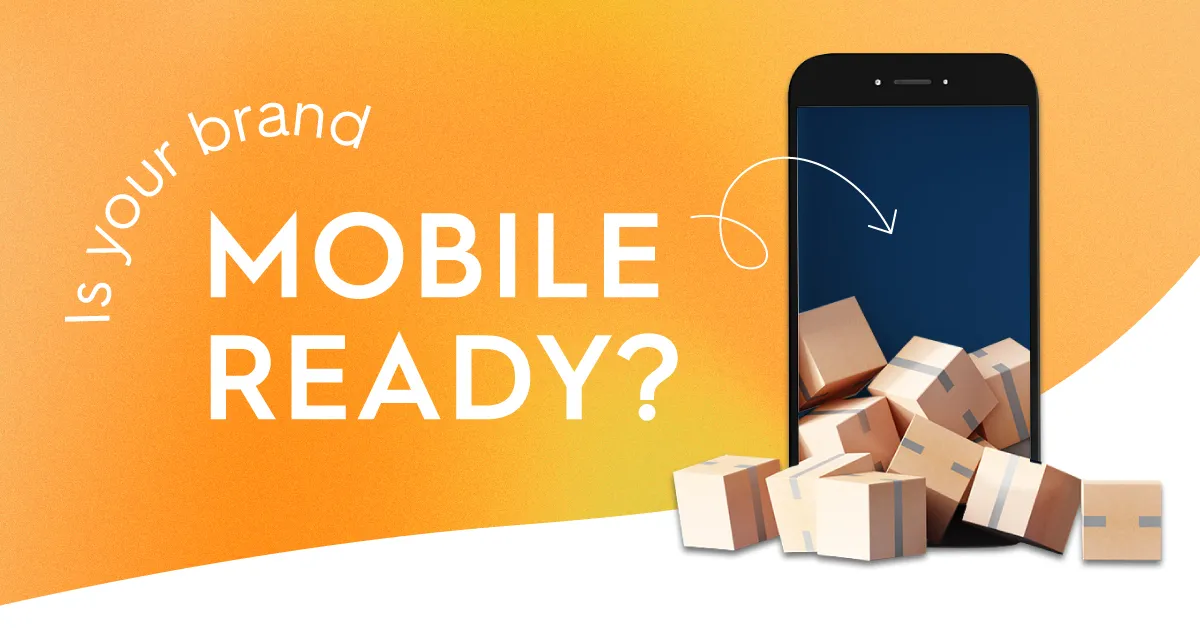Walmart is Dominating Amazon in Grocery Sales and is Poised for Continued Growth
Walmart is making significant strides in online sales and has…
We are based in historic Annapolis, Maryland, but our team is nationwide. Contact us today to learn how we can help amplify your brand.
Walmart is making significant strides in online sales and has…
Compass team leaders weigh in on what it means to…
More and more Americans are using generative AI tools in…

Despite initial reluctance, consumers have embraced mobile commerce and today it accounts for an ever-growing share of eCommerce shopping transactions.
Editorial by Aaron Brooks, Vice President of Business Development
Nearly 15 years after the launch of the iPhone, smartphones, tablets, smartwatches, and other mobile devices have become deeply integrated into everyday life. Previous types of mobile devices were used to simply make calls or send text messages, but the rise of Internet-connected “smart” devices has helped make it possible to efficiently accomplish tasks that used to be done much less efficiently, including purchasing products.
Today, more than 6 billion people around the world currently own a smart phone, including 77% of Americans or about 230 million U.S. consumers.1, 2 In addition, about 100 million U.S. consumers own a tablet.3
When smartphones were first introduced, many consumers were suspicious of shopping online using a mobile device. Since that time, however, consumers have become more comfortable with mobile shopping, also known as “mobile commerce” or “m-commerce”. Defined as any monetary transaction completed using a mobile device, such as a cell phone or tablet, m-commerce is distinct from traditional eCommerce.1
Despite initial reluctance from consumers, mobile commerce accounts for an ever-growing share of online shopping transactions. According to Statista, in 2021 mobile commerce commanded nearly 73% of global eCommerce market share, up from approximately 59% in 2017.2 In terms of dollars, 2021 mobile retail sales in the United States were more than $220 billion, with this figure expected to surpass $400 billion by 2024.3
Given these statistics, brands large and small must ensure they are creating mobile experiences that are seamless and truly delight their customers. At Compass Marketing, we predict mobile commerce will become the preferred channel for consumers to shop online within the next five years. Considering the increasing consumer adoption of mobile commerce, brands need to make sure that they are creating mobile customer experiences that harmonize with both in-store or brick-and-mortar retail experiences, as well as traditional eCommerce experiences.
Mobile commerce enables brands to create a true omnichannel experience, allowing customers to seamlessly move between their own brand or eCommerce website, other online retailers (like Amazon or Walmart.com), in-store retailers, and other channels. Consumers are becoming more technologically savvy every day, and they’re often researching products online before completing their purchase in a brick-and-mortar store. Using high-quality images and consistent messaging—and making sure both are optimized for mobile—not only benefits the brand by ensuring content is attractively and legibly presented, but it can also help consumers feel more confident in the brand and its products.
Looking at the landscape, the Compass Marketing team has found many brands are not optimized and mobile-ready. From an inconsistent brand image to how specific products show up on a brand’s website or on other online retailers, being mobile-ready is essential. In the six months prior to September 2021, approximately 80% of shoppers used a mobile phone inside a physical store to either look up product reviews, compare prices or find alternative store locations, and this number continues to grow.4 Even when transactions are not completed online, the mobile experience can be vital to converting today’s consumers.
Content syndication is one solution that can streamline this process. Many platforms offer syndication and while they may differ in their approach, most are able to republish brand content across multiple eCommerce websites. Some platforms even include built-in tools to help make sure that content is mobile-optimized or optimized to individual retailer specifications. Regardless of how it’s done, content syndication is a relatively simple way to control a brand’s identity and how consumers perceive it. The Compass Marketing team has worked with multiple content syndication platforms and is able provide guidance on the entire process.
Whatever you want to call it—mobile commerce, mobile shopping, or m-commerce—optimizing content for mobile devices is a great opportunity for brands to meet consumers where they are shopping now and where research indicates they will continue to shop in the future. Our expert team has helped many brands seize this opportunity to make their content mobile-ready. We have seen tremendous success and driven significant revenue for our clients through m-commerce, and we see this as a significant trend going forward. If you would like to learn more, please contact us today.
SOURCES
1 Breaking Down M-Commerce: Statistics, Trends and What to Expect as Ecommerce Goes Mobile. BigCommerce. https://www.bigcommerce.com/articles/ecommerce/mobile-commerce/
2 10 Mobile Commerce Trends That Will Dominate 2022. BuildFire. https://buildfire.com/mobile-commerce-trends
3 M-commerce Statistics and Trends Infographics. Go-Globe. https://www.go-globe.com/m-commerce-statistics-and-trends-infographics-infographic/
4 Copoola, D. (2021, August 20). U.S. smartphone retail m-commerce revenue 2018-2024. Statista. https://www.statista.com/statistics/276636/smartphones-us-retail-m-commerce-sales/
5 Smith, J. (2022, January 14). Mobile eCommerce Stats in 2022 and the Future Online Shopping Trends of mCommerce. OuterBox. https://www.outerboxdesign.com/web-design-articles/mobile-ecommerce-statistics

Aaron is currently in a leadership role at Compass Marketing. He has 25 years of experience in operational and growth-oriented consulting in large and small consulting firms.

Nick is a copywriter at Compass Marketing with extensive experience crafting effective, sales-focused copy for a variety of CPG brands.

Keeley is a graphic designer at Compass Marketing. She helps brands tell their stories through persuasive and engaging design.
Compass Marketing can help you discover opportunities for your brand. Our account managers and eCommerce experts use a holistic approach based on data and insights to help guide brands to success. If you would like to learn more, please reach out to info@compassmarketinginc.net! We are always happy to help and would love to learn more about you and your brand.
We are dedicated to making brands more valuable by combining the very best in insights and experiences with unmatched human interaction. Our team of sales, marketing, and digital experts is dedicated to growing our clients’ market share and building brand equity. We combine art and science—pairing the personal expertise of our team with proprietary technology—to help brands grow quickly and efficiently. As an Amazon Ads partner, we can help brands realize significant growth on one of the world’s largest eCommerce retailers.
Click here and subscribe to communications and receive invitations to our impactful webinars with our industry-leading partners.
We are based in historic Annapolis, Maryland, but our team is nationwide. Contact us today to learn how we can help amplify your brand.
©Compass Marketing Inc. All rights reserved.